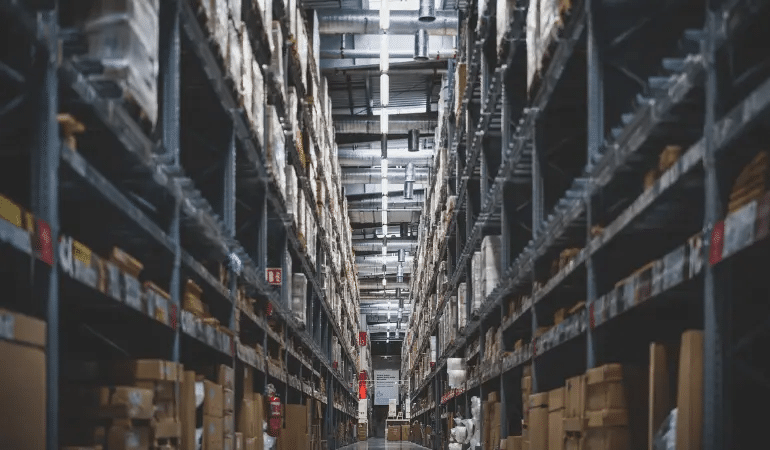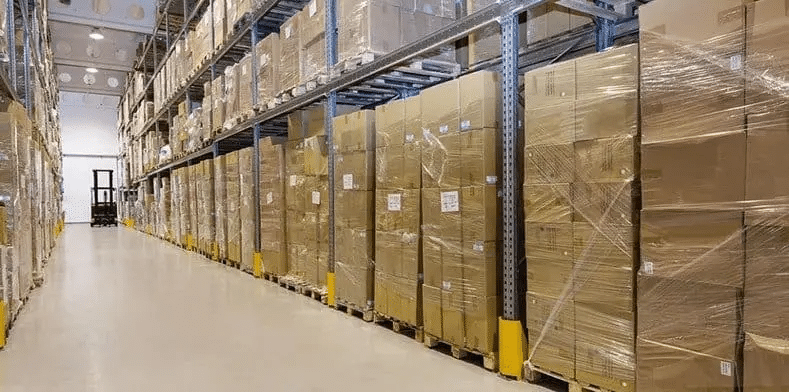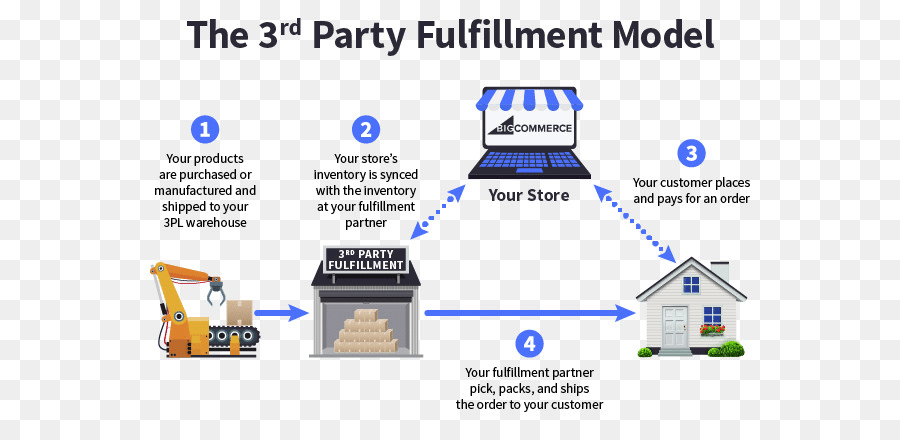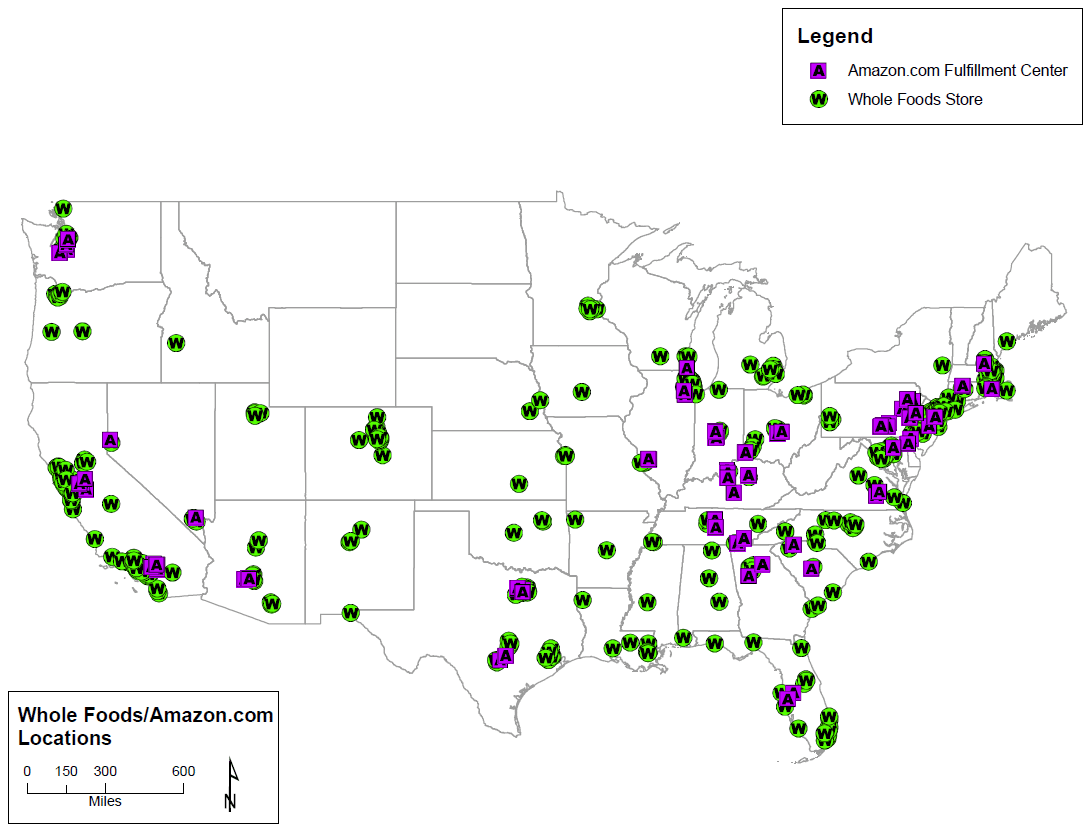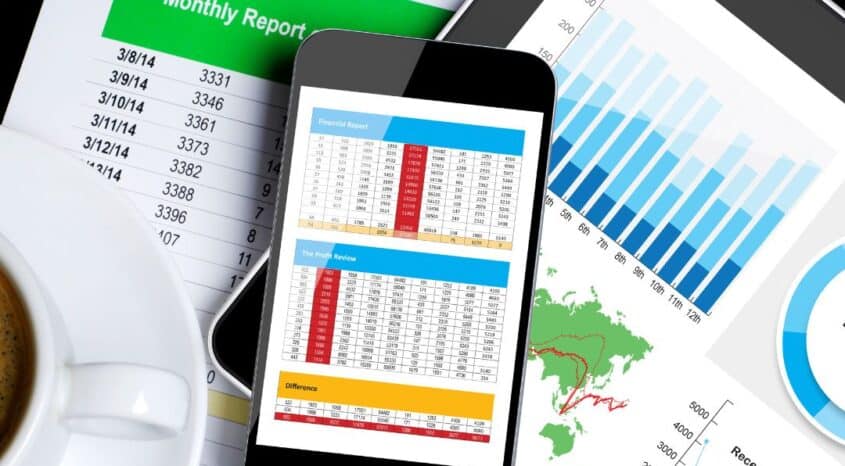Recent disruptions to normal life have affected the way people work. Businesses are looking for tools to work flexibly—like video calling apps, which help your company maintain continuity.
People are also spending more time at home, with 40 percent of consumers saying they will shop solely online within five years! Like many eCommerce retailers, you’ll be looking for ways to aid the growth of your business. You want to strike while the opportunity is hot.
Every business wants to gain new customers. But misplaced orders or late deliveries can turn a positive customer experience into a negative one. And that won’t help your business, regardless of high-performing sales and marketing.
You probably already have a warehouse solution. And this can be great for storing materials and holding on to product stock for large periods. But to level up the eCommerce experience for your customers, you need to streamline the fulfillment process for your business.
In this article, we will go over the pros and cons of using a fulfillment center vs a distribution center.
What is a Fulfillment Center?
Image source: Brightpearl
A fulfillment center is a solution that can increase your productivity. Order fulfillment is a crucial part of the supply chain. Fulfillment centers are typically run by third-party logistics (3PL) firms, who fulfill customer orders on behalf of eCommerce retailers. The process of fulfillment includes picking, packing, and shipping orders to customers.
The types of products and retailers can vary depending on the fulfillment center. As can the types of customers:B2B, B2C, or even very niche customers. And in addition to outbound shipping, many fulfillment centers will handle the return process for the customer.
Fulfillment centers are normally part of a national global network. This provides you with strategic locations in the areas where you do business.
But you already have a warehouse!
Most likely your eCommerce business already has a warehouse solution in place. This will be owned and operated by your company and staffed with your own employees. However, this warehouse may be strictly for the storage of goods, with no customer order processing or shipping taking place.
What is a Distribution Center?
Image source: Brightpearl
A distribution center resembles a traditional warehouse. But it also includes some capabilities for order fulfillment. A retailer may employ a distribution center in the supply chain to store large quantities of product, usually for a short time.
From the distribution center, your business can easily ship in bulk to other locations. Maybe to your own department stores for distribution. But in most cases, you will be shipping to other retailers and will then be selling the product to the end customer.
Distribution centers can move bulk quantities painlessly from main warehouses. For this reason, distribution centers are more likely to be used for B2B retailers.
This is because the typical flow rates of distribution centers are greater than in a standard warehouse. To achieve this, distribution centers utilize technology for warehouse and transportation management. And by doing so, a distribution center becomes a crucial bridge between a business and its customers.
Pros of a Fulfillment Center
Fulfillment centers are not a one-size-fits-all solution, but they do have some capabilities in common. Here are a few reasons you should consider using one for your company.
Focus on the core of your business
For most people running a retail business, order processing and fulfillment can seem rather mundane, not to mention stressful. But you can reduce the headache of getting your products to your customers!
By linking up with a 3PL and its fulfillment center, you and your staff can focus more time on the crucial aspects of your business. For example, product sourcing, marketing, and brand strategy. You’ll also be able to introduce a time limit when you hold free meetings online, to make them shorter and more productived.
Image Source: cleanpng
And you can lower your payroll costs by reducing the amount of warehouse staff you employ. This reduction in payroll and overheads can be pocketed by the business, or you can invest the savings into your IT or Marketing channels.
You also will eliminate the hassle and worry of dealing with order picking and packing. Not to mention the logistical nightmare of shipping and returns! And a 3PL will provide you with all the tracking data you could ever need for optimal inventory management.
Using a fulfillment center lessens your anxieties about product fulfillment for the company. And you’ll gain more time for you and your team to work on evolving your business ideas into reality.
Free up space in your warehouse
Chances are you have a lot of materials in your warehouse. Maybe you are storing business materials like office supplies. Or you could be storing incomplete products waiting to be finished for retail. And that space sure doesn’t come cheap!
Fulfillment centers take on consumer-ready products for multiple businesses, so there are many customers using the same warehouse space. As such, your business will only occupy one or two pallet spaces with your inventory. Whereas, with a distribution center, you will oftentimes need to send in bulk quantities far greater than this.
By moving retail-ready inventory to a fulfillment center, you can use that warehouse space for other purposes! And you may even find that you can downsize for a long-term storage solution. Whether you own or lease storage, shrinking your inventory footprint can lower your overhead costs.
Get closer to your customers
Whether your business is based in one or several locations, you’ll be aiming to garner interest from a national or global market. When you sign up with a fulfillment center service, you will be getting closer to the major population centers you want to serve.
Distribution centers will usually be on the outskirts of a city or even a bit farther afield. Think of them almost like an airport. They are quite busy with large modes of intermodal transportation.
Image Source: Medium
But fulfillment centers are normally on the edge of a bustling city. And for larger cities, they usually operate in multiple locations around the urban centers.
This means your customers will get their items quickly and orders will arrive on time as expected. Nothing is worse than losing a sale because an impatient customer has decided to cancel and buy the product from someone else!
Also, many 3PL companies enable you to move into new areas with minimum hassle. This will help you optimize your distribution strategy. If you start a regional marketing campaign, you can quickly get your products to the most relevant fulfillment centers.
Flexibility to move inventory around is one thing. But you can also opt for more storage space as your company grows. By using fulfillment centers, your business increases its scalability for storage and distribution.
Outsource your customer service
Customer service is important to any business. But staying on top of high-level customer service is not easy.
With a distribution center, there’s actually an extra degree of separation from your customers. Oftentimes, your customer service team will have to contact logistics in the distribution center. And only then will they be able to give inquiring customers the information that they need.
When you opt to employ a fulfillment solution for your business, you will also have the opportunity to improve your customer service. Many fulfillment operators set an example of exceptional customer care.
By using the externally provided service, your team won’t have to handle order inquiries or order troubleshooting. And you needn’t worry about losing control—external customer service teams will treat your customers like their own. Plus, they will handle all reverse logistics like creating shipping labels and processing returns.
Again, this means more time for you to focus on other aspects of your business.
Customer Experience
A fulfillment center eliminates the hassle of picking and packing an order. You won’t have to devote precious resources to processing an order for shipment. Instead, your team can concentrate on areas like branding or product development.
Fulfillment centers can also complete finishing touches in preparing an item for the consumer, such as combining several items into a larger box like a gift set. And customers will also have the option to add gift wrapping or a gift message to purchased items.
The team members at the fulfillment center will carefully package items so that they arrive with your customers in perfect condition. If any damage does occur, the fulfillment center will take care of recouping any costs to your business.
Image source: Unsplash
As mentioned above, the superior locations of fulfillment centers can ensure your customers get their orders on time. Fulfillment centers have many customers and operate on a large scale, so they can access bulk discounts on shipping labels and packaging materials.
This means you will save on shipping costs. And these savings can be passed on to your customers. Offering low-cost or free shipping is a great way to combat cart abandonment on your eCommerce site!
Cons of a Fulfilment Center
Fulfillment centers aren’t for everybody. Any business worth its weight knows that with every new solution, there are a few strings attached. Let’s go over a few things you should consider before signing up to a 3PL provider with fulfillment centers.
Loss of Control
Outsourcing to fulfillment centers can minimize hassle and complexity. Once a sale is made, your business doesn’t have to worry about getting the product to the end consumer. However, for many business owners and operators, it can be hard to hand this process over.
The first instinct can be to micromanage your 3PL service. For your company to really thrive, you and your department heads will need to let go. This means there needs to be a bridge of trust between the retailer and the fulfillment center operators.
So do your due diligence and find a reputable and stable company that you can trust with your order fulfillment. Don’t be afraid to ask for shipping data or other essential metrics, and keep in touch with your provider using tools like audio conferencing solutions.
Potential Costs
Many online retailers will find that using fulfillment centers can lower their operating costs. But this is not always the case. As always, the solution you choose will depend on your type of business.
Image source: Unsplash
Because fulfillment centers receive many shipments each day, they can have additive holding fees. This means that the storage costs for items go up after the initial holding period (usually a month).
Are you selling products with a short buying cycle or a small inventory footprint? If your answer to either question is no, then you may have an issue. Many retailers have a mix of inventory that moves at different rates.
To effectively maximize fulfillment center spending, you and your team will want to make sure you sell items that move. Products should sell fast enough to empty a pallet during the initial holding period.
Loss of Personalization
When outsourcing the order processing and fulfillment of your business, you will lose the ability to add a personal touch to orders. Fulfillment center staff will take care to package and ship items accurately and on time.
But you may not be able to add promotional materials or include a free gift with a customer order, or a greeting card during the holiday season. So when you have a campaign that focuses on rewarding your best customers, you will have to find other action methods.

Image Source: Brightpearl
This lack of personalization may be a deal-breaker for some businesses. Smaller retailers or those dealing in high-quality niche products may want to look elsewhere.
Lack of Customization
Employing fulfillment centers can cause the loss of customer personalization on your end. But it can also take away customization for you and the customer.
Shipping and packaging options will be limited to whatever the fulfillment center provides. If you make a delicate item like custom handmade acoustic guitars, you may find packaging material options to be greatly lacking.
And some 3PL providers may not be able to provide nominated delivery days or guaranteed Saturday delivery. Or they may only provide gift-wrapping services during the peak holiday season.
Even more rare is the ability to choose the type of packaging and include a special message on a customized card. This can be frustrating for potential customers when it comes to last-minute purchases. It may even cause a cart to be abandoned when buying a gift for special occasions.
Human Error
Any fulfillment center worth your time should be using the latest technology for warehouse management. And your ecommerce business should employ inventory and project management tools. Ideally, you’ll be using software that integrates with warehouse data for real-time updates. This should allow your team to stay on top of potential problems.
Image Source: BrightPearl
But despite the best technology, outsourcing adds a layer of possible human error. And as such, there can be times where a simple mistake can cause delays in important product information getting back to your team.
There may be an influx of returns for specific products with a major flaw. Or there could be a problem with understocking a hot-selling item. When inventory data isn’t up-to-date, confusion ensues and money is lost.
The best bet is to make sure your business is using the best tools it has available for inventory and warehouse management.
Final Verdict
Your online retail business can gain some big benefits by outsourcing to a fulfillment center provider. But before deciding, you must carefully weigh the pros and cons.
And don’t forget to consider other options. There are pros to using distribution centers or maintaining your own control over fulfillment. Especially if you are a retailer dealing in B2B or dealing with niche products with a very long buying cycle.
But for most online retailers, fulfillment centers offer a way towards growth. Outsourcing to fulfillment centers gives your company more options, andour business will be able to invest resources into business-growing activities.

